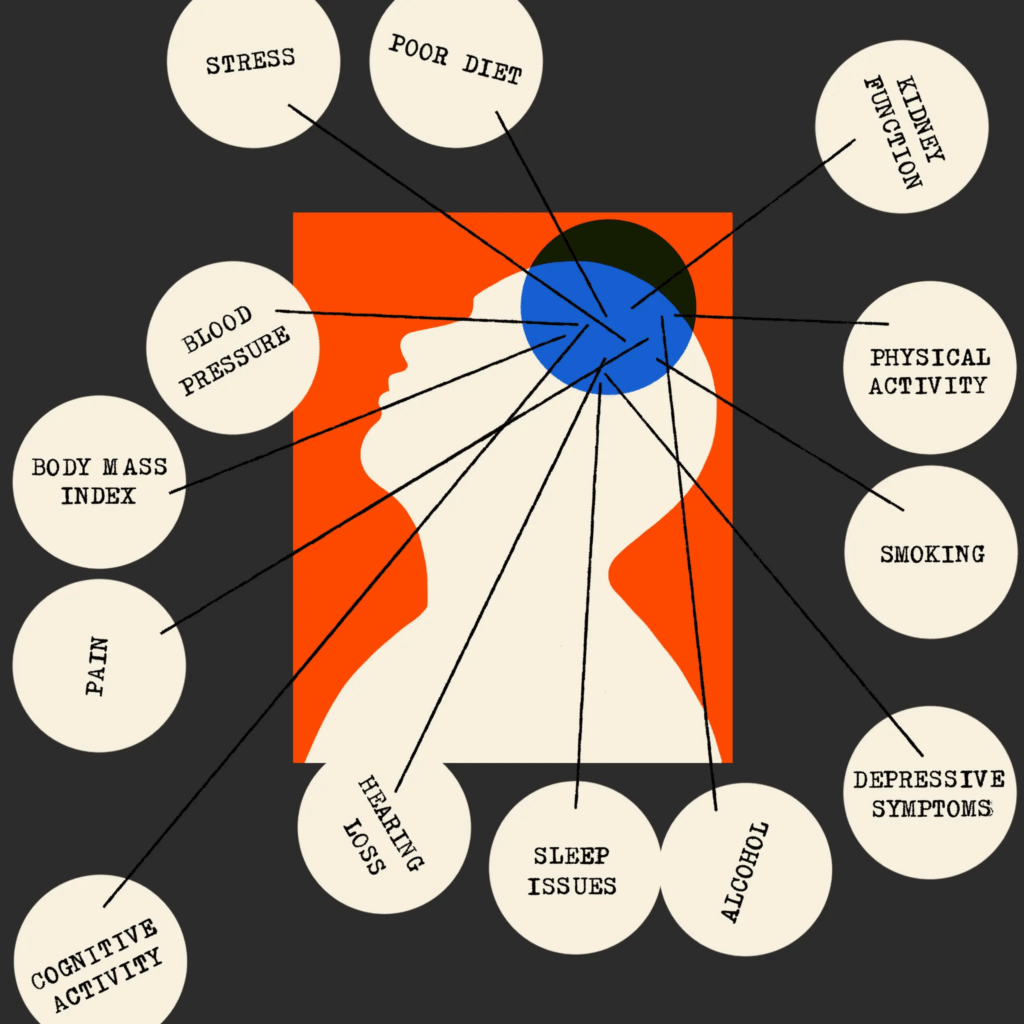Link: https://www.nytimes.com/2025/04/23/well/dementia-stroke-depression-prevention.html?smid=url-share
Graphic:

Excerpt:
New research has identified 17 overlapping factors that affect your risk of stroke, dementia and late-life depression, suggesting that a number of lifestyle changes could simultaneously lower the risk of all three.
Though they may appear unrelated, people who have dementia or depression or who experience a stroke also often end up having one or both of the other conditions, said Dr. Sanjula Singh, a principal investigator at the Brain Care Labs at Massachusetts General Hospital and the lead author of the study. That’s because they may share underlying damage to small blood vessels in the brain, experts said.
….
The factors that protect against brain disease
The study, which looked at data from 59 meta-analyses, identified six factors that lower your risk of brain diseases:
- Low to moderate alcohol intake (Consuming one to three drinks a day had a smaller benefit than consuming less than one drink a day.)
- Cognitive activity, meaning regular engagement in mentally stimulating tasks like reading or doing puzzles
- A diet high in vegetables, fruit, dairy, fish and nuts
- Moderate or high levels of physical activity
- A sense of purpose in life
- A large social network
The factors that increase your risk
The study also identified 13 health characteristics and habits that make you more likely to develop dementia, a stroke or late-life depression. (Altogether, the protective and harmful factors add up to 19 factors because two of them, diet and social connections, can increase or decrease risk, depending on their type and quality.)
- High blood pressure
- High body mass index
- High blood sugar
- High total cholesterol
- Depressive symptoms
- A diet high in red meat, sugar-sweetened beverages, sweets and sodium
- Hearing loss
- Kidney disease
- Pain, particularly forms that interfere with activity
- Sleep disturbances (for example, insomnia or poor sleep quality) or sleep periods longer than eight hours
- Smoking history
- Loneliness or isolation
- General stress or stressful life events (as reported by study subjects)
Author(s): Nina Agrawal
Publication Date: 23 Apr 2025
Publication Site: NYT